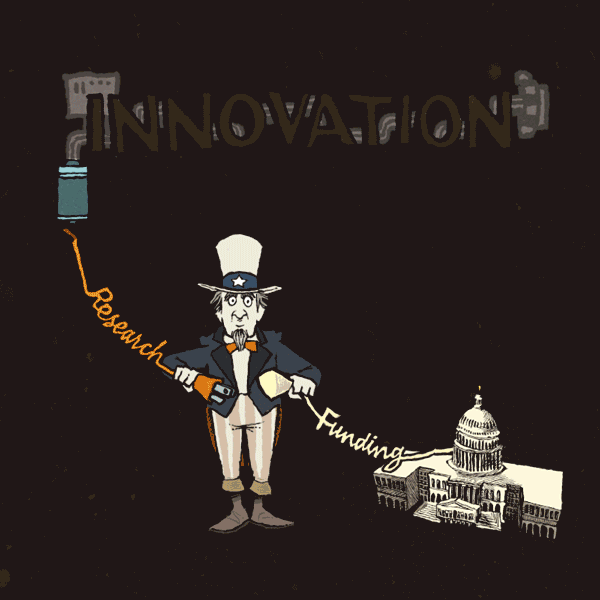UIC, other universities urge lawmakers to close innovation deficit
 The University of Illinois joins a coalition of university, scientific and business organizations today urging Congress and President Obama to ensure that the U.S. remains a leader in innovation by increasing federal investments in research.
The University of Illinois joins a coalition of university, scientific and business organizations today urging Congress and President Obama to ensure that the U.S. remains a leader in innovation by increasing federal investments in research.
The innovation deficit — the widening gap between actual and needed federal investments in research and higher education — continues to increase in the U.S., while other nations such as China, India and Singapore dramatically boost research funding to develop technological and medical breakthroughs to move their economies forward.
One year ago today, UIC Chancellor Paula Allen-Meares added her name to an open letter to President Obama and Congress signed by more than 200 university officials, urging them to take action against the innovation deficit.
Progress has been made, the coalition says, but more needs to be done.
UIC is a leader in moving federally funded research into innovative real world applications.
Illinois’ EPIR Technologies, built on UIC physics professor Siva Sivananthan’s research that transforms light into electricity, was important in developing night-vision technology used by the U.S. military. Sivananthan’s work also has the potential to make Illinois a major player in solar energy. His basic research was supported by grants from the Department of Defense, the Department of Energy and the National Science Foundation.
Alan Feinerman, UIC associate professor of electrical and computer engineering, developed an insulation that is light, thin and inexpensive, produced by his company, Thermal Conservation Technologies. “Almost half the energy we use is lost through poor insulation,” he said. His company is commercializing the advanced thermal insulation for a variety of uses, including refrigerated transportation.
National Institutes of Health grants to Brenda Russell in UIC’s department of physiology and biophysics helped fund Cell Habitats, a biotech company that develops microdevices to mimic stem cell activity leading to regeneration of normal healthy tissue. “I would like to bring the science from basic research in our university lab all the way to be able to help patients repair their worn heart when they’re in heart failure,” Russell said.
In the coming weeks, members of the Close the Innovation Deficit coalition will speak with legislators in their districts and on Capitol Hill. They will urge lawmakers to prioritize investments in research during the fiscal year 2015 appropriations process and, over the long term, eliminate sequestration and deal with entitlements and tax reform to make possible the increased investments needed to close the innovation deficit.
For more information, visit www.innovationdeficit.org.
